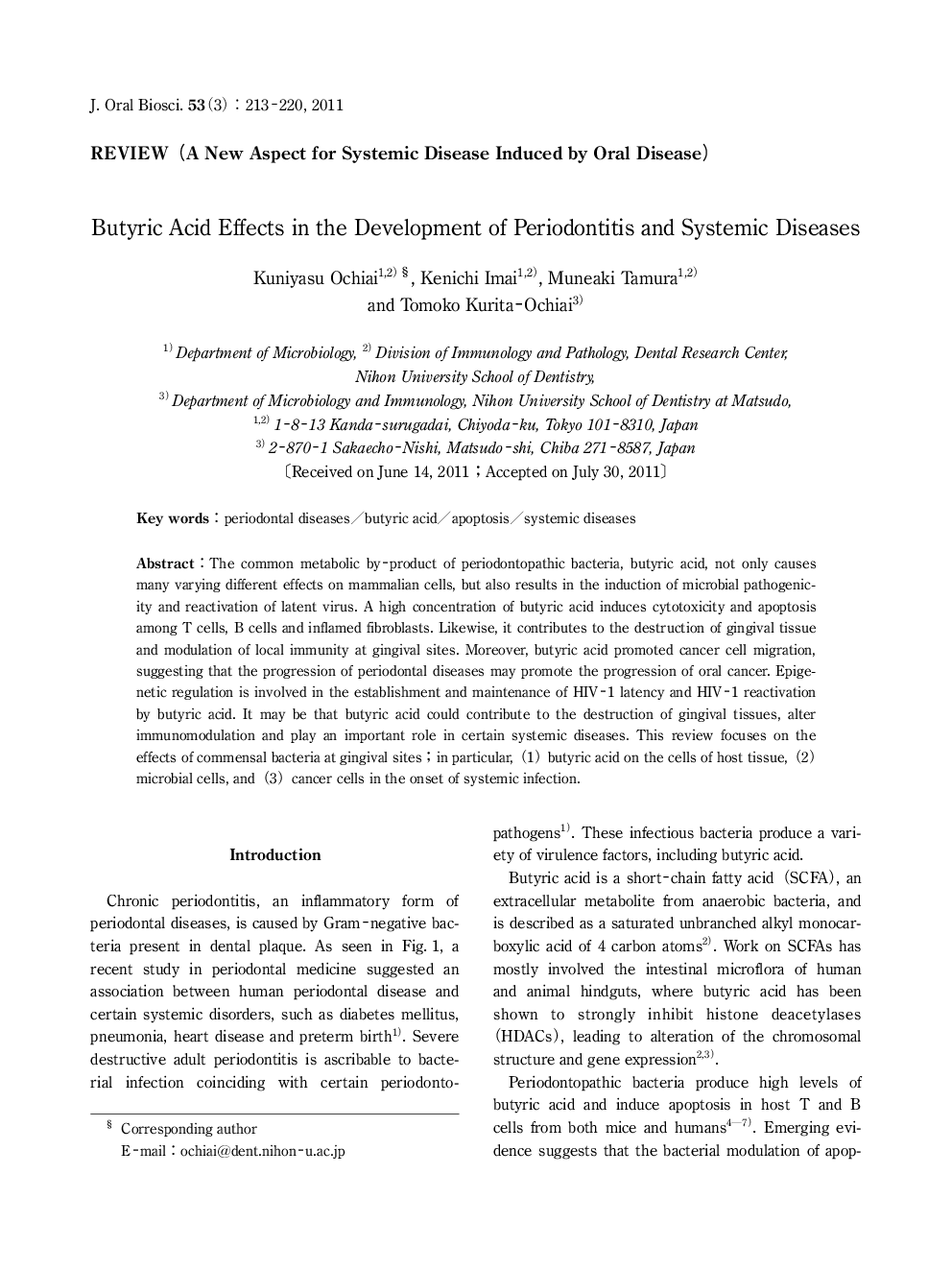| Article ID | Journal | Published Year | Pages | File Type |
|---|---|---|---|---|
| 2776959 | Journal of Oral Biosciences | 2011 | 8 Pages |
The common metabolic by-product of periodontopathic bacteria, butyric acid, not only causes many varying different effects on mammalian cells, but also results in the induction of microbial pathogenicity and reactivation of latent virus. A high concentration of butyric acid induces cytotoxicity and apoptosis among T cells, B cells and inflamed fibroblasts. Likewise, it contributes to the destruction of gingival tissue and modulation of local immunity at gingival sites. Moreover, butyric acid promoted cancer cell migration, suggesting that the progression of periodontal diseases may promote the progression of oral cancer. Epigenetic regulation is involved in the establishment and maintenance of HIV-1 latency and HIV-1 reactivation by butyric acid. It may be that butyric acid could contribute to the destruction of gingival tissues, alter immunomodulation and play an important role in certain systemic diseases. This review focuses on the effects of commensal bacteria at gingival sites ; in particular, (1) butyric acid on the cells of host tissue, (2) microbial cells, and (3) cancer cells in the onset of systemic infection.
